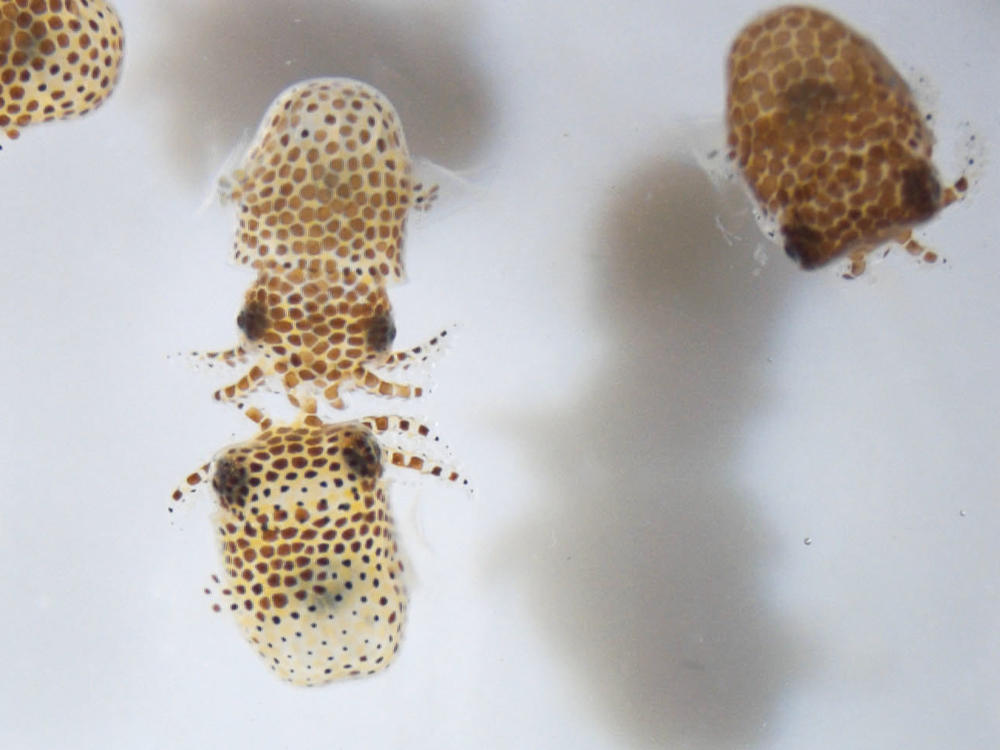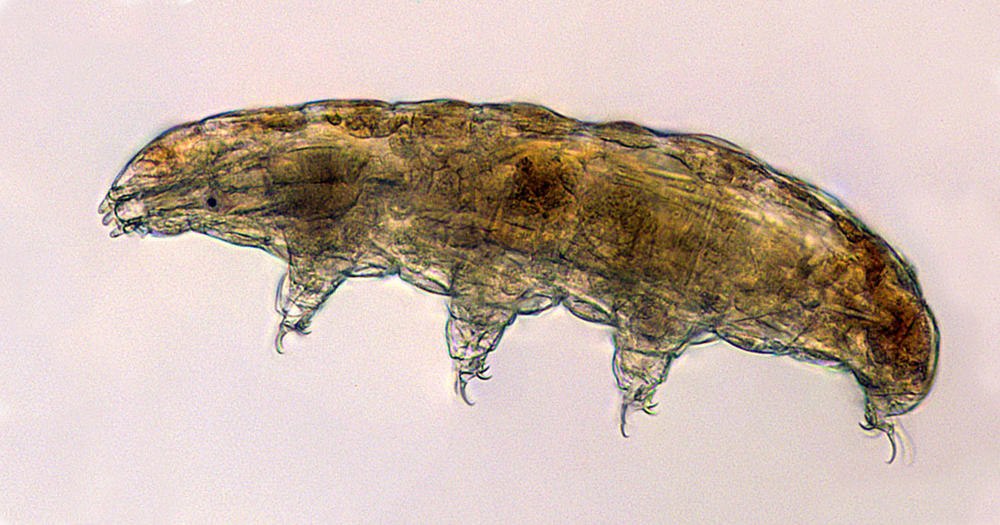Section Branding
Header Content
Why NASA Is Blasting Water Bears And Bobtail Squid Into Space
Primary Content
When SpaceX makes its 22nd resupply mission to the International Space Station on Thursday, it will be carrying two very special guest species: water bears and bobtail squid.
The animals are being launched into the cosmos in the name of science, as NASA researchers attempt to learn more about how the conditions of spaceflight can affect biological organisms and, by extension, future astronauts.
Water bears: basically indestructible
Tardigrades are microscopic organisms better known as "water bears" because of their shape and the fact that they commonly live in the water. (They have also been called, endearingly, "moss piglets.")
Water bears can survive in conditions that would prove fatal for most other animals, such as exposure to extreme temperatures, pressure, and radiation. The fact that they are basically indestructible, according to NASA, makes them the perfect test subjects for an experiment about the effects of spaceflight on biological survival.
Scientists want to see how traveling through the solar system affects water bears because it might help them understand what happens to astronauts when they are rocketing through space. The agency may use that information to develop "countermeasures" to make future voyages easier on human travelers.
"Spaceflight can be a really challenging environment for organisms, including humans, who have evolved to the conditions on Earth," said principal investigator Thomas Boothby.
"One of the things we are really keen to do is understand how tardigrades are surviving and reproducing in these environments and whether we can learn anything about the tricks that they are using and adapt them to safeguard astronauts."
The friendly microbe of a bobtail squid
Thousands of microbes live inside the human body and work to keep us healthy.
But scientists don't have a clear picture of how microgravity — which allows the kind of floating weightlessness experienced by astronauts when they travel into space — affects those microbes.
That is the subject of an ongoing NASA research program called the Understanding of Microgravity on Animal-Microbe Interactions, or UMAMI.
"Animals, including humans, rely on our microbes to maintain a healthy digestive and immune system," says UMAMI principal investigator Jamie Foster. "We do not fully understand how spaceflight alters these beneficial interactions."
That's where the bobtail squid come in.
Scientists will study whether microgravity has an impact on the relationship between newly hatched bobtail squid, or Euprymna scolopes, and their symbiotic bacterium, Vibrio fischeri.
The goal is to use what they learn about the relationship between squid and the microbes to help better prepare astronauts for lengthy space missions and preserve their health while they're out there.
The experiment could also lead to a new understanding of the ways animals and helpful microbes interact and may even have applications for improving health on Earth, NASA said.
Copyright 2021 NPR. To see more, visit https://www.npr.org.


